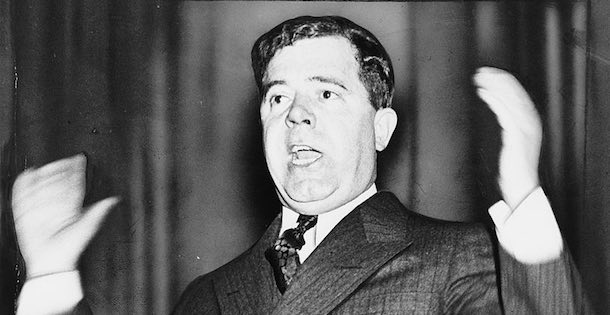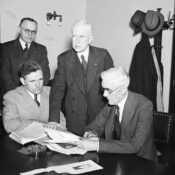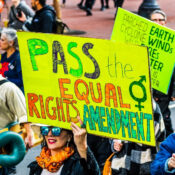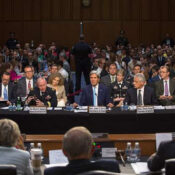Shortly after the assassination of Huey P. Long on September 10, 1935, the Post published the editorial “The End of a Chapter.” While it raises up Long’s “wit and outspokenness” and his “rare showmanship,” it openly denounces his radical “Share Our Wealth” campaign, which, sought to put a cap on personal fortunes and provide a base-level homestead for every family.
Learn more about Huey “The Kingfish” Long’s politics, life, and legacy in “Long before Trump: The Unsettling Popularity of Huey Long.”
The End of a Chapter
Editorial
Originally published on October 19, 1935
Men and events have a way of quickly becoming dim memories, but it will be many a day before the American people forget the strange career and colorful personality of Huey Long. He had remarkable qualities of wit and outspokenness, together with rare showmanship. Yet in wide and not unintelligent circles his violent death met with rather perfunctory expressions of regret.
Assassination under any circumstances or for any reason is not to be condoned, but it is the natural result or child of despotism. It has no place in our system of government, but neither has the type of government that was shaping up in Louisiana any place in our system.
Even before Long was killed, it was frequently pointed out that his whole career showed how mere laws do not insure or protect democratic institutions. Even while maintaining its legal and ostensible forms, he pointed the way to their destruction. Once again we are forcibly reminded that each new generation needs to be educated in the values of liberty and self-government, and that our whole political system requires constant revitalization from the bottom up.
Finally, any gifts which come to the people as the result of despotism are paid for with too great a price. Long was at times a searching and relentless critic of the present administration, but the cynical and ruthless way in which he ran his own state detracted from the sincerity of his strictures; no one could be sure of his motives or purposes.
He posed as a great friend of the people and made promises to “share the wealth” so absurd that any but the most gullible should have seen through them. It has never been suggested that the political machine under his personal management was a purely altruistic organization. Public men, like all others, must be judged by actions, not by words.
Huey Long was a friend of the poor and oppressed only to the extent that he led his own state along paths of enlightenment and progress, and within the framework of democratic institutions and self government.
If he did not do this, he was no friend of the people at all, no matter how inflated, exuberant, and grandiloquent his promises of what he would do if elected president. The only leaders in public life who should be listened to and followed are those whose promises square with their past performances and whose speeches are consistent with their actions.
Become a Saturday Evening Post member and enjoy unlimited access. Subscribe now



